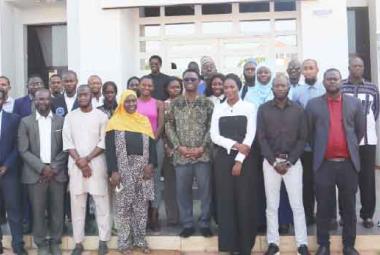By Kumba Leigh
A situational analysis report in The Gambia on HIV AIDS has revealed that 26 thousand people are living with the virus, women being the majority. Sixteen thousand, four hundred and five (16,405) women are living with the virus; while nine hundred and sixty-five (9,965) men are affected and one thousand, seven hundred and fifty-nine (1,759) are children.
In an interview with Gambia Daily, the Monitoring and Evaluation Specialist, National AIDS Secretariat (NAS), Mr Lamin Badjie, explained that out of the 26 thousand HIV AIDS patients, 60 percent know their HIV status, and 65 percent are on medication, and another 65 percent on viral suppression.
He further explained that those on viral suppression cannot transfer the disease to another person even if they are engaged in casual sexual activity.
Explaining the reason for women recording the highest number of infection, Mr Badjie said they are biologically more exposed to HIV AIDS virus.
He informed that The Gambia has a generalised epidemic with a low prevalence; that the 2013 Demographic Health Survey (DHS) revealed that the prevalence of HIV AIDS in The Gambia is at 1.9%.
On their interventions, the M&E Specialists said they implement and support HIV AIDS prevention methods, counseling, testing, and awareness campaign such as condom distribution, education programmes, and outreach efforts in an effort to reduce and prevent new infections.
He added that they ensure that people living with HIV have access to antiretroviral therapy (ART) and appropriate care. This, he elucidates, improves the quality of life for the people living with the HIV and reduce mortality. Currently they have 23 treatment centres where patients are treated for free.
Mr Badjie mentioned capacity building of healthcare workers and community organizations, awareness creation and knowledge dissemination; conduct and support of research on surveillance activities to monitor the prevalence and trends of HIV AIDS in The Gambia, as some of their interventions.
The M & E Specialist emphasised the need for people to visit health facilities to know their HIV AIDS status. He lamented the persistence of stigmatization, and the belief in traditional healing, which he observed prevents victims from getting to the treatment centres.
“The National AIDS Secretariat is the coordinating body for HIV AIDS response in the country with its secretariat under the Office of the President.






